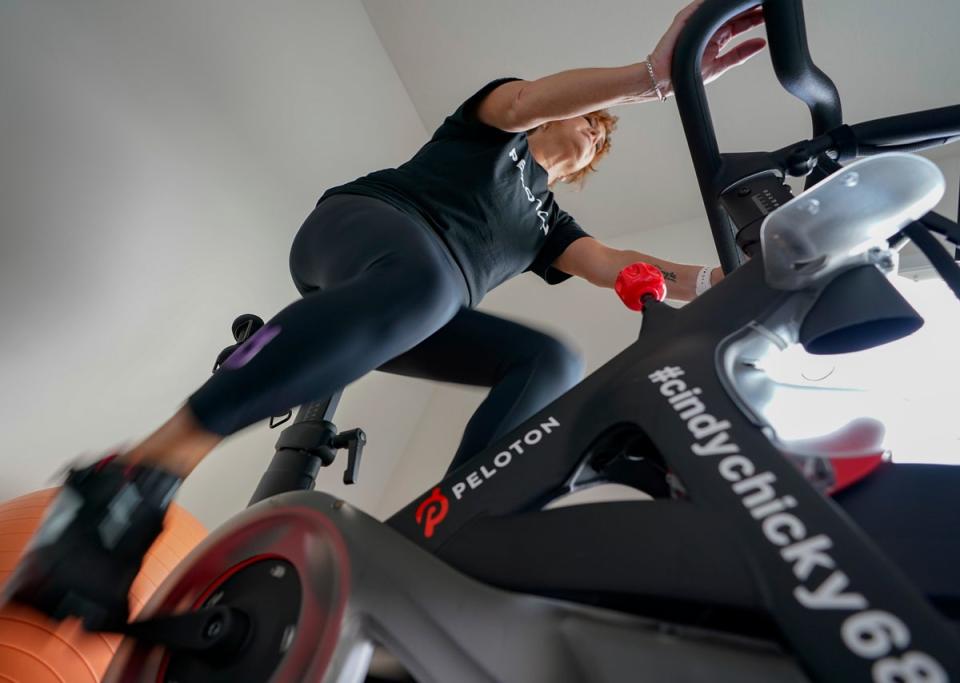Peloton stops building its own bikes as it attempts to turn its fortunes around

Peloton will stop making its own bikes, as it attempts to turn around its fortunes.
The company will instead outsource the production of its bikes and treadmills to Taiwanese company Rexon.
It says the plan will help it reduce its costs and simplify its supply chain.
The move comes as Peloton looks to reverse the issues that have seen its profits plunge and its stock price fall. Peloton had initially benefited from the move to home workouts during the pandemic – but appeared to overestimate its impact, and has been dealing with issues in recent months.
Its response has included cutting almost 3,000 jobs, the installation of a new chief executive and plans to outsource its manufacturing. Peloton also looks set to focus more on its software and content offerings, rather than its hardware products – though it still recently announced a rowing machine to add to its existing bike and treadmill.
In October 2019, Peloton bought manufacturing company Tonic, and that had been making some of its bikes. But that will now be suspended through 2022, with Rexon becoming the primary manufacturer instead.
Rexon has been making some of the bikes and treadmills offered by Peloton already. But now all of them will be made outside of Peloton itself.
Peloton chief executive Barry McCarthy, who took over from founder John Foley at the top of the company amid increasing concern about its future, said the decision was a “significant step in simplifying our supply chain and variablizing our cost structure – a key priority for us”.
The deal would make the company more flexible and allow it to focus on its technology and content, he said.
Outsourcing manufacturing is also likely to give Peloton the ability to control the amount of bikes and treadmills that are made more precisely, depending on demand. That could help respond to issues that have seen numerous pieces of hardware sitting unsold within its supply chain.

 Yahoo Finance
Yahoo Finance 